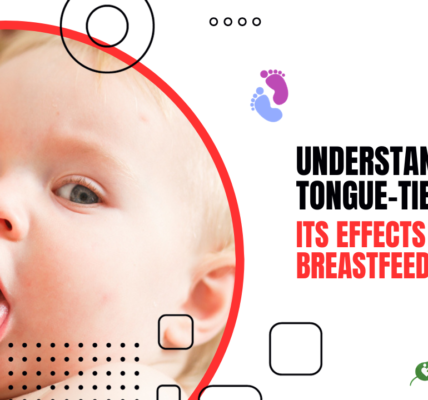Breastfeeding Tips for Newborns: A Beginner’s Guide to Getting Started
Welcoming a newborn into your life is an extraordinary experience, and one of the most precious gifts you can give your baby is breastfeeding. This beginner’s guide of breastfeeding tips for newborns aims to equip you with the knowledge and confidence you need to initiate and navigate the journey of breastfeeding your newborn.
The Marvels of Breastfeeding
Breastfeeding is nature’s most remarkable way of nourishing your baby. It bestows a wide array of advantages that include:
1. Optimal Nutrition
Breast milk serves as a wellspring of perfect nourishment for your baby, comprising all the vital nutrients for healthy growth and development. It dynamically adapts to meet your baby’s changing requirements as they grow.
2. Immune System Fortification
Breast milk is a robust source of antibodies, bolstering your baby’s defense against infections and diseases. This leads to a lower incidence of illnesses in their early months of life.
3. Emotional Connection
Breastfeeding fosters a deep emotional connection between you and your baby. The skin-to-skin contact during feeds contributes to building a profound bond.
4. Unparalleled Convenience
Breast milk is available round the clock at the perfect temperature, necessitating no preparation, and it’s easily digestible. This convenience translates into both time and cost savings compared to formula.
5. Maternal Well-Being
Breastfeeding reduces the risk of postpartum depression and assists your body in recuperating from pregnancy and childbirth more expeditiously.
Initiating Successful Breastfeeding: Essential Breastfeeding Tips For Newborns
Breastfeeding is a skill that you and your baby will both learn and perfect over time. The following invaluable tips will aid you in your journey:
1. Find a Comfortable Spot
Locate a cozy and comfortable place to sit with good back support. Employ pillows to ensure you and your baby are relaxed.
2. Achieve a Good Latch
A successful breastfeeding experience hinges on a proper latch. Ensure your baby’s mouth covers a significant portion of your areola, not merely the nipple.
3. Embrace Skin-to-Skin
Immediate skin-to-skin contact after birth aids your baby in latching more effectively and encourages bonding.
4. Decipher Hunger Signs
Familiarize yourself with your baby’s hunger cues, such as rooting, hand-to-mouth movements, and sucking reflexes. Feed your baby when they exhibit these signals.
5. Frequent Feedings
Newborns have small stomachs and necessitate frequent feeding. Aim for 8-12 feedings daily, roughly every 2-3 hours.
6. Maintain Hydration and Nutrition
Stay well-hydrated and adhere to a balanced diet to ensure an adequate supply of breast milk.
7. Seek Guidance
Do not hesitate to seek advice from a lactation consultant or join a support group for breastfeeding mothers. They can provide valuable guidance and support.
8. Patience Is Key
Breastfeeding may present challenges initially, but with time and patience, both you and your baby will adapt and thrive in this journey.
Frequently Asked Questions (FAQs) About Breastfeeding Tips for Newborns
1. How do I know if my baby is getting enough milk?
Ans 1: Your baby is getting enough milk if they exhibit regular wet and soiled diapers, experience weight gain, and seem content after feeds.
2. Can I breastfeed if I’m returning to work?
Ans 2: Certainly! Many working mothers continue breastfeeding by expressing and storing breast milk for their absence.
3. What’s the ideal duration for each breastfeeding session?
Ans 3: On average, newborns breastfeed for about 10-15 minutes on each breast. However, some may feed for shorter or longer durations.
4. Can I breastfeed if I have inverted nipples?
Ans 4: Yes, breastfeeding is possible with inverted nipples. Consult a lactation consultant for guidance on effective latch techniques.
5. Is it okay to introduce a pacifier in the early weeks?
Ans 5: It is generally advisable to wait until breastfeeding is well-established, typically after a few weeks, to avoid nipple confusion.
6. What should I do if my baby has difficulty latching?
Ans 6: If your baby struggles to latch, consult a lactation consultant. Their expertise can assist in resolving the issue.
7. Is pain during breastfeeding normal?
Ans 7: While some discomfort can be expected in the initial days, severe pain or nipple cracking may indicate a latch problem. Seek help if such pain persists.
8. Can I breastfeed after a C-section?
Ans 8: Yes, breastfeeding is feasible post-C-section. Opt for comfortable positions that do not exert pressure on the incision site.
9. Can I take medications while breastfeeding?
Ans 9: Many medications are compatible with breastfeeding, but it’s wise to consult your healthcare provider for personalized advice.
10. What’s the recommended duration for breastfeeding my baby?
Ans 10: Breastfeeding is encouraged for at least the first six months, and it can be continued for as long as both you and your baby desire.
In Conclusion
Commencing your breastfeeding journey with your newborn is a profound experience. While it may present challenges, the multitude of benefits makes it an incredibly rewarding endeavor. Armed with these breastfeeding tips for newborns and expert guidance, you are well on your way to a successful and fulfilling breastfeeding experience.
For additional parenting and childcare resources, visit Parentology, a treasure trove of expert advice and insights.





